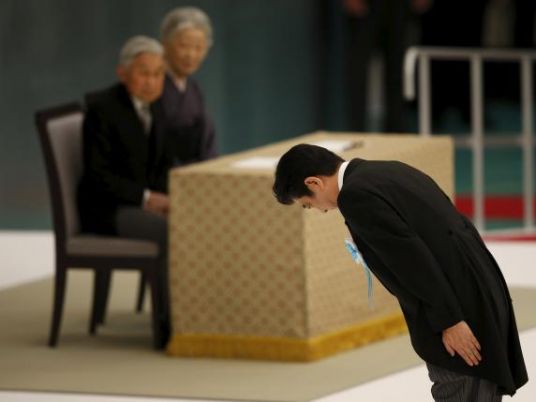
Public support for Japanese Prime Minister Shinzo Abe fell after the passage of controversial national security bills, which could let troops fight overseas for the first time since the end of World War Two, polls published on Monday showed.
Support for Abe's cabinet dropped six percentage points from last month to 40 percent, with its disapproval rate climbing seven points to 47 percent, according to an opinion poll by the Nikkei business daily.
The legislation, which had triggered massive protests from ordinary citizens and others who say it violates Japan's pacifist constitution and could embroil Japan in US-led conflicts, was voted into law on Saturday.
Disapproval of the bills was at 54 percent, due largely to a perceived lack of explanation of them by the government, the Nikkei poll showed. Only 31 percent supported the changes.
Surveys in the Asahi, Mainichi and Yomiuri dailies showed similar falls in support for the Abe cabinet and opposition to the legislation.
However, the unpopularity of the bills has not been a boon for Japan's main opposition party. Support for the Democratic Party rose only three points from last month, to 12 percent, the Nikkei said.
The passage of the security bills was a milestone for Abe's efforts to relax limits imposed on the military by Japan's constitution. Abe says the shift – the biggest change in Japan's defense policy since the creation of its post-war military in 1954 – is needed to meet new security challenges, such as that posed by a rising China.
